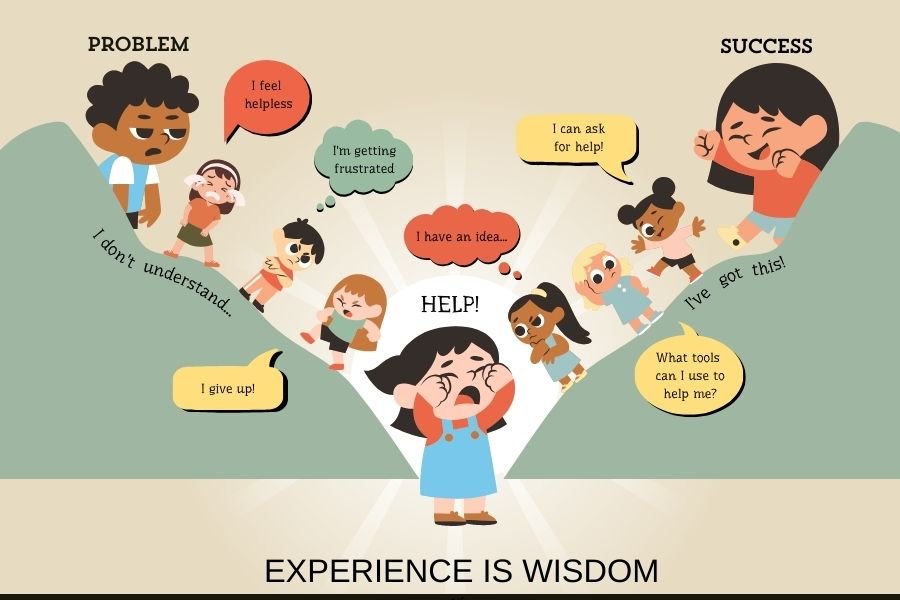In the modern world, there has been a general mental health revolution. Even though many people who are struggling find it hard to reach out to professionals for help due to factors ranging from social to economic, the stereotypes around the topic of therapy and those giving it have undergone significant improvements. More and more people who can afford it are reaching out to therapists.
But therapists are also humans. The people who are helping us can also need help themselves. They have undertaken a difficult task, and to fulfill it, there is a factor that needs to be taken utmost care of for this task to succeed. That element is the mental well-being of the professionals themselves. Everyone needs a mental detox and cleansing, and so does a therapist helping us in our mental cleansing. Only a healthy mind can help another one become better.
Therapists are committed to ongoing professional development, constantly seeking new approaches and tools to serve their clients better. While traditional therapeutic modalities remain essential, exploring complementary practices like meditation can enrich a therapist’s repertoire and lead to more personalized and effective treatment.
This isn’t merely about recommending meditation apps to clients. It’s about therapists developing a nuanced understanding of various meditation practices and their applications within a therapeutic context. Just as a skilled craftsperson utilizes specialized tools for specific tasks, therapists can leverage diverse meditation techniques to address the unique needs of each individual.
Consider Transcendental Meditation (TM), a technique known for its ability to induce deep relaxation and reduce stress. TM could be a valuable tool for clients struggling with anxiety, insomnia, or chronic pain. TM may boost memory, cognitive functions, and overall brain functioning. Regular TM practice has been linked to lower blood pressure. TM can positively impact sleep quality. TM fosters mindfulness and emotional intelligence, promoting overall well-being
On the other hand, Zen Meditation, with its emphasis on mindfulness and cultivating present-moment awareness, might be particularly helpful for individuals navigating depression, rumination, or difficulty managing emotions. Zen meditation, also known as Zazen, reduces stress and promotes relaxation. It enhances emotional regulation and resilience. Zen meditation improves cognitive flexibility and attention. Research suggests that it positively impacts brain structure and function.
Efficacy of Transcendental Meditation to Reduce Stress Among Health Care Workers: A Randomized Clinical Trial: explores the impact of TM on stress reduction among health care professionals. It emphasizes the benefits of TM for managing stress and promoting overall well-being.
How do we practice Transcendental meditation? Transcendental Meditation is a process that requires us to chant a mantra constantly for 15-20 minutes. A mantra is a sentence or a congregation of certain words that is repeated continuously and improves our concentration. Transcendental Meditation ™ is a form of meditation known for its simplicity and depth. It has been associated with a wide range of benefits, which include:
- Stress Reduction: TM is particularly effective at reducing stress and anxiety, which can have a positive impact on overall well-being.
- Improved Mental Health: Regular practice can lead to lower levels of anxiety and depression and better mood regulation.
- Enhanced Cognitive Function: Practitioners often report increased focus, clarity, creativity, and better memory.
- Physical Health Benefits: Studies suggest TM can lower blood pressure, improve heart health, and strengthen the immune system.
- Better Sleep: Many find that TM improves sleep quality, leading to more incredible energy and vitality.
- Greater Resilience: Long-term practice can build resilience, making coping with life’s challenges more manageable.
- Spiritual Growth: Some individuals experience a deepening of spiritual awareness and inner peace.
On the other hand, Zen meditation, also known as Zazen, is a form of meditation that stems from Buddhist practice. It emphasizes the importance of sitting in quiet contemplation and mindfulness. It includes focussing on your breath and sitting in an upright posture, noticing the movement of your breath in your belly and being gently aware of your thoughts and emotions without getting attached to them. Its benefits are:
- Insight into Mind: Zen meditation can help you better understand how the mind works.
- Emotional Regulation: It helps manage emotions and reduce stress and anxiety.
- Increased Awareness: Practitioners often experience heightened self-awareness and mindfulness.
- Physical Health: There are indications that Zen meditation can improve autonomic nervous system function.
- Spiritual Growth: Zen meditation can lead to spiritual awakening and a clearer perception of reality.
Zen meditation is not just a practice but a way of life that can profoundly change one’s perspective and approach to life’s challenges.
The key is to understand the nuances of each practice and apply them judiciously. This requires therapists to explore meditation themselves, experiencing firsthand the benefits and limitations of different techniques. By cultivating this personal understanding, therapists can make more informed recommendations and guide clients toward practices that resonate with their needs and preferences.
While specific meditation practices offer distinct benefits, it’s crucial to remember that no single approach is a universal remedy. Therapists must remain adaptable and responsive to each client’s needs and preferences. What works wonders for one individual may not resonate with another.
This underscores the importance of a client-centered approach, where open communication and collaborative exploration guide the therapeutic process. Therapists can gain valuable insights into clients’ experiences, preferences, and challenges by engaging in ongoing dialogue. This cooperative spirit fosters trust, empowers clients to participate actively in their healing journey, and allows therapists to tailor their approach for maximum impact.
Our compassionate buddies at Antaha use this technique to connect with others, help them in their journey, and guide them toward a brighter and vibrant future.
Integrating diverse meditation practices into one’s therapeutic repertoire is not a destination but an ongoing journey of exploration and growth. As therapists, we are well-served by embracing a spirit of lifelong learning, continually seeking new knowledge and refining our skills.
This exploration extends beyond mere intellectual understanding. Engaging in personal meditation practice, attending workshops, and seeking guidance from experienced meditation teachers can provide invaluable insights and deepen our ability to guide others. By cultivating our inner stillness and clarity, we become more attuned to the needs of our clients and better equipped to support their journeys toward greater well-being.














